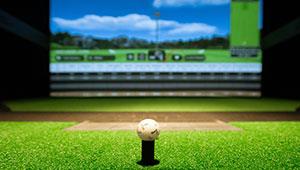
Good morning.
It goes without saying, your morning routine sets the bar for the rest of your day ... and sometimes,?one?day can set a?precedent for the rest of your week.
That said, every morning can't be perfect—but what you always make sure to do in that first half hour after your alarm goes off can certainly point you in the right direction over the next 24 hours.
Here are four sure-fire things to do as soon as you wake up to literally get you out of bed on the?good side.
Check Out Your Pee
You may think this is funny, but it's very important. One of the first things you probably do in the morning is go to the bathroom. Your urine says a lot about your health and your diet; which can help you plan your day, nutritionally.
Start with assessing the color of your urine. A healthy person's urine is typically yellow; almost clear to bright yellow. Your urine is yellow because of uroblins (also known as urochomes, a pigment that turns your urine yellow).
Your urine carries these uroblins, and?when diluted with water your urine turns light or almost clear (meaning you're hydrated). The wives-tale is true, the darker your urine means you need to hydrate.
So start drinking water.
If you see color in your urine such as: blue-green, fluorescent yellow or orange, brown, pinkish/red, cloudy, or if it's smelly that?can mean either you're eating foods or taking medication. Or, you have some sort of infection. If your urine doesn't clear up within 24 hours, go see a doctor.
Take a Shot
?of Vitamin C. Eat some C-enriched fruit or?drink a glass of orange juice, grapefruit, carrot or tomato juice before you brush your teeth. You can also take a vitamin C or multi-vitamin supplement along with it.
A survey of US doctors found that those who were healthiest consumed at least 250 mg of vitamin C per day. Aside from the fact that high blood vitamin C levels indicate a low risk for cardiovascular disease and certain types of cancer as well as other immune-based diseases. Vitamin C is required for the synthesis of collogen, it's a potent anti-oxidant protecting against free radicals, pollutions, carcinogens, heavy metals and other toxins, it's anti-viral and mildly anti-bacterial and we are one of the only mammals that don't produce vitamin C on our own.
- 1
- of
- 3
Get ACTIVE on the Go


Couch to 5K®
The best way to get new runners off the couch and across the finish line of their first 5K.
Available for iOS | Android







Discuss This Article